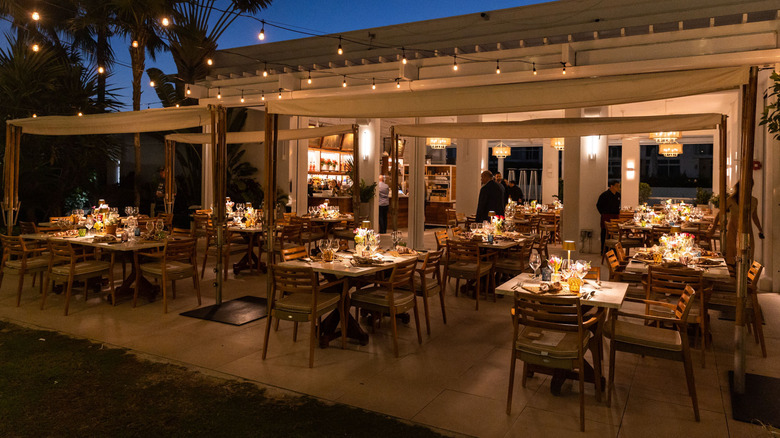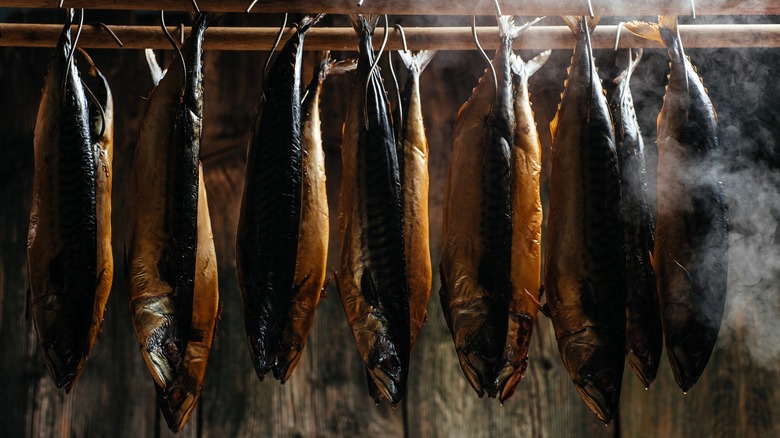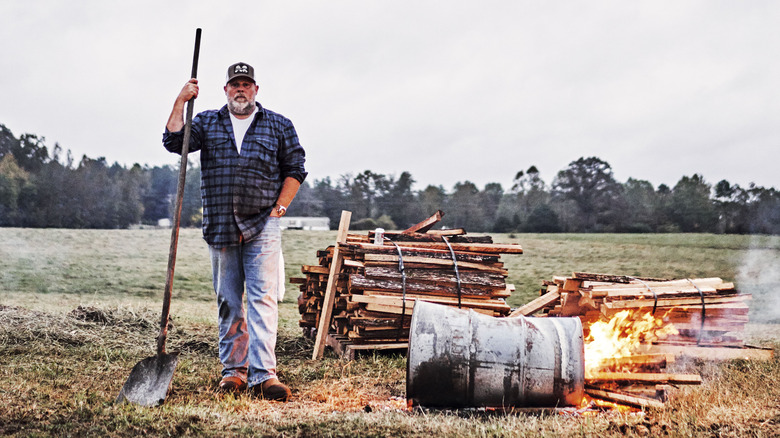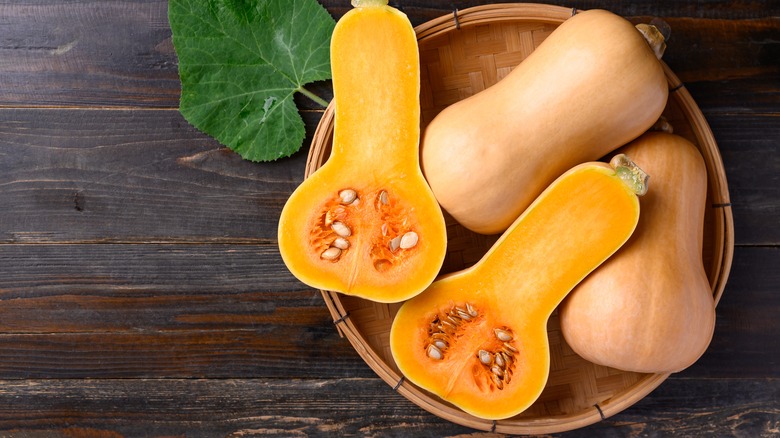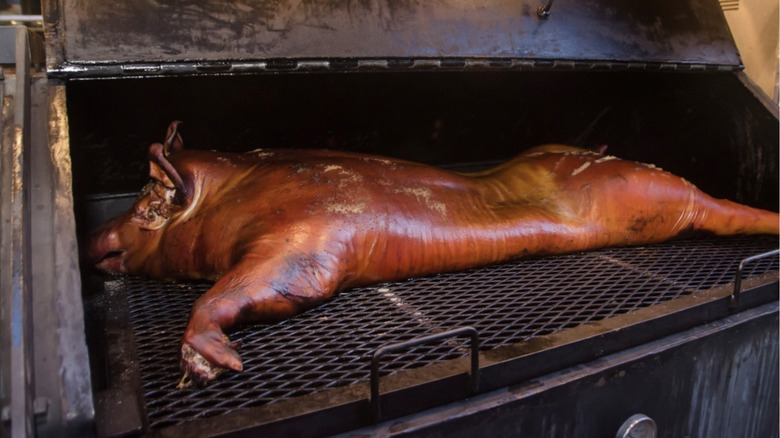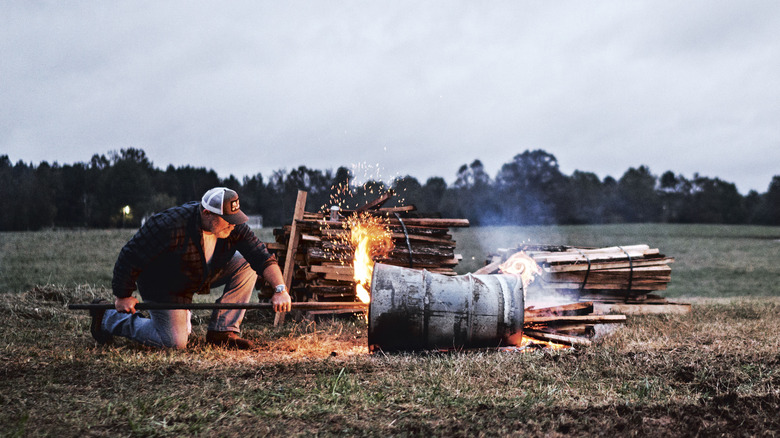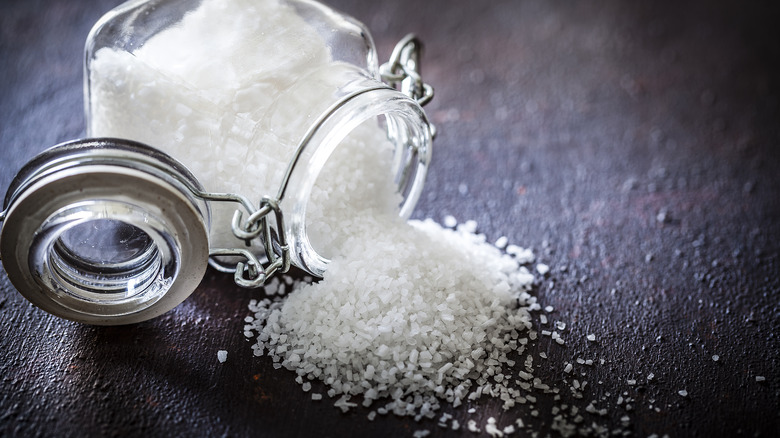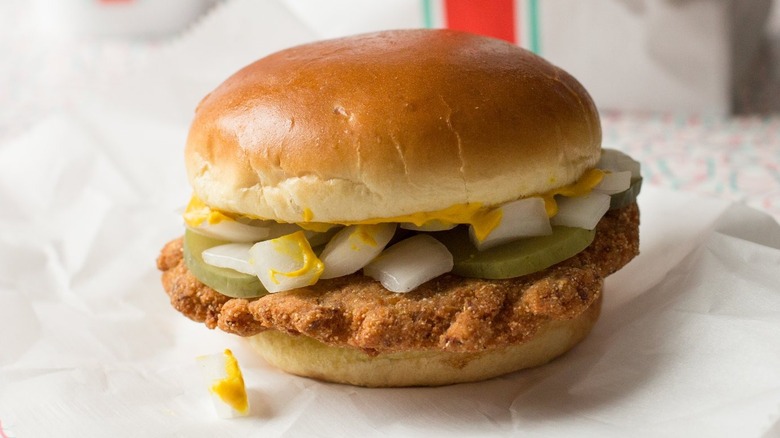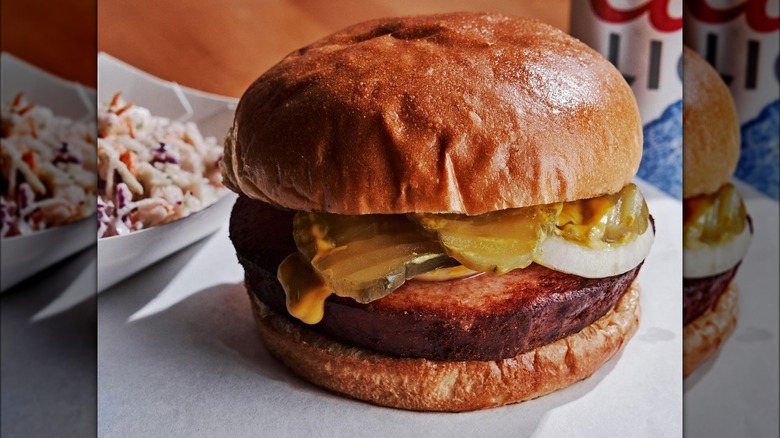Legendary Pitmaster Pat Martin Tells Us His Barbecue Secrets - Exclusive Interview
Pat Martin has dedicated his life to preserving and expanding on the traditions of West Tennessee-style whole hog barbecue. His restaurant, Martin's Bar-B-Que Joint, dishes out hickory-smoked pulled pork as well as other local delicacies like smoked bologna. He also runs Hugh-Baby's, a small chain of barbecue and burger restaurants that serves smoked meats as well as classic smashburgers and Mississippi's mysterious slugburger.
Despite his strong grounding in regional traditions, Martin isn't constrained by old-fashioned ideas about what barbecue should be. He's showcasing his flair for experimentation at this year's South Beach Wine & Food Fest by collaborating with Claudio Lobina, the head chef of the Patio restaurant at Miami Beach's Continuum residences, on a fine-dining barbecue tasting menu.
We spoke with Martin in an exclusive interview in the run-up to his SOBEWFF dinner and talked to him about how to elevate barbecue, proper smoking techniques, and more. He shared a wealth of tips that will be helpful to any people aspiring to take their barbecue game to the next level.
Combining fine dining and barbecue in South Beach
What was the process for coming up with your menu for your South Beach Wine & Food Fest dinner at Continuum?
There's a couple of us barbecue guys out there that aren't typical, that don't stay in our box, so to speak. Barbecue is my roots, but I approach cooking with just live fire in mind anyway. I'm a creative, so the creativity just pops out. You always want to do something where you're making the guests feel like they are happy, very happy that they bought the ticket. I mean, they have options, but I also want to give them something that's a little bit of a play and also always be authentic to who I am and what I do as far as cooking.
Looking at the menu, it's sort of a halfway point between barbecue and fine dining.
Yeah, I like straddling that line.
Do you think there are ways that people can incorporate those fine dining influences when they're smoking at home?
Yeah, I do. I think that the problem, a lot of times the people who think about fine dining equate that to white tablecloth. They have this image in their head. And so I like to think about fine dining from a standpoint of contrast in life. A menu like this, there is this elegance to it, but there's also this brutality to it. And so I think that if you say fine dining, the average person, they think it's out of reach. They've got it elevated so high in their mind that they can't do it or won't do it. Or even if you've got somebody who's a very good cook but is limited in their creativity, we as chefs always want to set rules and check boxes and parameters.
And rules are suggested to me in a lot of ways, especially when it comes to creativity. There shouldn't be any rules. So I just kind of approach everything a little bit tongue in cheek and quit overthinking fine dining and quit overthinking elevation. You can have elegance with three ingredients and a protein or a vegetable, and that's it. You just need a salt. You need an acid. Maybe some chili flakes and some really good prawns over live fire coals with, I don't know, a really great glass of cava or something like that. And what's more elegant than that in your shorts on your back deck?
I think tradition should be used as a compass, not a GPS. You're using tradition as a nod to what your roots are. But we're not going to take I95 all the way there; we're going to get off and see the country. That's just how I look at food.
Strategies for smoking fish
You're smoking mahi mahi for one of the dishes. Do you like to smoke fish a lot? How is the process different from say, smoking pork or beef?
A lot of people conflate smoking with barbecue. And so if I'm going to barbecue a fish, it is going to be an oily fish, which mahi is not.
I just did some with my buddy Perry Lang in L.A. a couple of months ago. We just did a whole tuna, a bluefin tuna head, giant bluefin collars, barbecued it for three hours. It was absolutely unbelievable. So if I'm going to smoke this mahi, the smoke in it is going to be very delicate, very light. And I lean that way towards smoke as an ingredient anyway.
Because most people, when they've had barbecue and didn't like it, usually it's because they had wood that wasn't seasoned. And that wood, when it's not seasoned, it still has a lot of tannins and a lot of nasty flavors. So you get that white billowy smoke that you end up burping up, and that's not how it should taste. You want wood to be seasoned out for about six months so it has a blue wispy light smoke, almost sweet from a nasal standpoint. So that's what we're going to do with this mahi. It'll be a very delicate smoke, just enough to get a smoky flavor in it, and then we make our dip, and it's awesome.
Would you use the same type of rig for smoking versus barbecuing, or are you using different equipment?
I use all of it. I can get smoked flavor in a fish on an open pit. You can get it in a smoker, but you have to be a little careful because you can over-smoke it pretty quickly. They've got some equipment down there for me to use, and I'll just adjust to it. But it'll be a very light, delicate smoke.
So it's a matter of timing, then?
That's correct.
What makes a great cut of meat for barbecue
Besides the fish, are there any non-traditional proteins that you think take really well to smoke?
Globally, there are things that Americans may not get a lot of, such as we're going to barbecue some lamb. This lamb, in particular, was raised in the fashion of raising hogs. So it is a very fatty lamb, and it is absolutely gorgeous meat. That is going to be our showpiece at the end.
When you say barbecue, people don't think about lamb; they only think about pork, chicken, and beef. But Americans, that's how we think. It's just like wine. We think there's only eight varietals in the world. No, there's a thousand different grapes in the world. The rest of the world drinks all kinds of wine, but we like to get in our boxes as Americans. Everybody's trying to make the same cabernet as the next guy, the same chardonnay as the next guy. And it's so boring. You know what I mean? There's so much more out there to do.
If you're making barbecue, are you looking specifically for fatty proteins like lamb or bluefin tuna?
I want fatty proteins because they help stand up to the long cooking period. But what I'm really looking for is muscle fiber, collagen, tough cuts of meat because I want that collagen to turn gelatinous over time. So think of it like your mom's pot roast, you know what I mean? You're braising in a wet environment, and barbecue is really the same. We're getting to the same process, but we have smoke, and it's in a dry environment, so it takes longer because moisture is in constant contact with every orifice of the meat.
Over time, that collagen finally quits fighting back and gives up; it perspires, basically. It sweats. And that's what's important in barbecue. A lot of people think that when they have some barbecue, they think they're tasting fat on their palate, and it's not. It's the collagen that they're actually feeling.
Plant-based smoking options
Are there any non-meat items you like to throw on a smoker?
Yeah. In the fall, I like to do a lot of pumpkins and big squash, like butternut squash. I like to cook those in there. But what I really like to do with those is more of an open pit method, which is basically a raised, elevated grill and the coals are very low. It's the same thing as cooking inside of a chamber. It's just a lot harder to do. But I actually lean towards cooking more vegetables now in my life than I do meat. Just meat can get pretty boring to me pretty quick.
What vegetables do you like to make the centerpiece of a meal?
If it's in the fall, like I said, I'll use something picturesque as a centerpiece. We were just talking about a butternut squash, like having those out. But during the spring and the summer and the early fall, when you're still getting the last part of the summer harvest, there's not really a centerpiece. I like to just get into everything, just have endives, char off Brussels sprouts. Obviously, tomatoes everywhere, onions, and tons of potatoes cooked in the ash. It's just more of a spread than a centerpiece.
And with the butternut squash, is it the sweetness that makes it work so well with the smoke, or is it because it's big, so it can absorb a decent amount of smoke?
Well, again, I don't like getting absorption with smoke. I mean, smoke is an ingredient to me, just like salt is.
Smoke should always be ancillary. So it's really more the flavor component of the smoke. But yes, the sugars in butternuts are great, especially when you put some salt, and chili flakes, and really great olive oil on them. But I'm also getting some of that char. All that together is the flavor profile I'm looking for. Take that, eat it by itself, or scoop all that out. Throw it in a salad with some torn bread and a very simple vinaigrette.
West Tennessee barbecue technique
You specialize in West Tennessee-style whole hog barbecue. And I've talked to Rodney Scott before about the South Carolina way of doing it. How is your style different from other ways of doing a whole pig?
Yeah, our style is different. So West Tennessee, that region of whole hog was if you were in between Nashville and Memphis, there's about five or six counties that traditionally always serve pit-cooked whole hog. The difference between us and, say, Eastern North Carolina is that we cook a larger hog. We call them sausage hogs because they traditionally were grown that large to put up for the winter for country ham, sausage, and bacon. So our hogs are about 200 pounds, whereas a hog you would find over in the Carolinas is about 125.
Ours has a lot more fat to it and is older, obviously. And we really rely on the collagen. They cook theirs hotter than we do. We cook ours at about 190 to 200 degrees Fahrenheit, whereas they cook theirs at 250 to 270 degrees. They chop all of theirs and mix their flavor profiles. We pull our meat and are very specific. Most of the people traditionally would always be opinionated about where they wanted their sandwich pulled from. If they wanted lean meat, they would ask for loin meat or ham. If they wanted fatty meat, they'd ask for the belly, and so on and so forth. We cook our hogs for about 24 hours. They cook theirs from about 12 to 14. And because we cook ours lower, we don't have skins in ours like they do in the Carolinas; they blister the skins.
I freaking love that. I love eating Carolina-style barbecue with the skins in it because we don't get it here. But we have to have that skin to act as a bowl because, basically, you've got a bit of confit going on because the hams are always dragging. They're always the last thing to get done on the hog. And so we have to keep all that rendered fat in a bowl, the skin bowl, so to speak, to protect that belly and shoulder while we're waiting on the hams to get done.
At the end of the day, we all serve slaw on our sandwiches, which is the way God meant for it to be. And we all serve vinegar-based sauces, which is the way it should be because that vinegar has to offset the fat. Think of it like a vinaigrette. You add an acid to fat, and that's what creates balance on your palate. But the style of how we got there is a little bit different. And we use hickory wood and they use oak.
Building a home barbecue pit
What is it about hickory? Is it just that hickory is local to West Tennessee, or is there a certain flavor you're looking for?
Hickory is the predominant wood in this area of the South. Hickory, when it's seasoned, almost takes on a sweetness. Not quite like a fruit wood, but similar. But when it's not seasoned, it's very bitter and acrid and turns a lot of people off. So a lot of people think hickory is really strong, and it is, if it's green, if it still has moisture in it. If it's dried out, it's not strong. It's perfect, in my opinion. I've used oak. I love using oak. I think the best wood to use is the wood that's grown around you.
Do you think there's a way of trying to get that West Tennessee-style flavor at home, or would you not recommend people try it?
I would always recommend that people try it. I think everybody should try it at home, and yeah, they can. Hickory wood is not hard to get even in areas where you don't have it, I mean you can have it shipped to you on Amazon if you want. You can get hickory chunks. Don't ever use wood chips because you have to soak wood chips to keep them from burning up and that recreates the acrid smoke. So you don't ever want to do that. Large hickory chunks thrown in with some hardwood lump charcoal, you can get there, yes.
And if people are working at home, what kind of rig do you think they should use? Would you say people should try to build a pit or use a Weber kettle?
Well, it's good you ask that. Cooking's cooking. There are some pits that breathe better than others and are easier to cook on. But you can cook on pretty much anything. I do happen to love a Weber grill. I would suggest that people build a block pit; it's the cheapest way, and it's also the best. In my opinion, it's the best way to hold heat because a pit breathes like a salamander, whereas a smoker has one mouth, so to speak, that breathes in. A pit with no mortar, you can't use mortar, but a pit that's dry stacked breathes 360 degrees around. You don't have as many hotspots, you have a more even cook, and it's less work.
So that's basically stacking up a brick enclosure and then putting a grate on top?
That's right. We just go to Lowe's or Home Depot and get cinder blocks. Cinder blocks make the best pit because air is a great insulator. So the air inside the cinder blocks gets hot and helps radiate back. It makes the cook more efficient. And then just get some rebar and lay it out; you can get a piece of fence and put it over the top of it. Anything that will support whatever you're cooking, keep it elevated, it works. Again, it's about not overthinking it.
Right. Since it's not all enclosed, do you think that changes the flavor too?
Well, I would put some cardboard or some kind of metal on top of it to keep it closed, but if you didn't have it enclosed, you would make the pit a little bit lower. Keep smoking longer than you normally would because a lot of that smoke's just going to dissipate.
Seasoning secrets
When you're doing West Tennessee-style, what kind of seasoning are you using?
Salt.
Just salt.
Salt, yeah. Just salt. And that's it, man. You can use a rub, but nothing really, just good Maldon salt, flake salt, kosher salt.
What about when you're doing the smoking stuff that's not necessarily traditional barbecue? What seasonings do you like to use?
So, in a smoker, you're really looking for bark. So a rub is good there. You can use just salt in a smoker, it's just as good in my opinion. But a lot of the competition guys like rubs and I like a rub. I have a good rub, and I like the flavor of bark on a pork shoulder or Boston butt. Everybody's got their secret rubs and sauces, and that's all really kind of BS because a rub is really 45% salt, 45-odd% sugars, whichever ones you want to use. Or say 40% and 40% and then some chili powder and then basically maybe a little dry mustard and just ancillary ingredients. But at the end of the day, it's just salt and sugar.
Does sugar help create that bark?
It does. Without the sugar, you cannot create the bark. Sugars have to caramelize.
The origins of the slugburger
You serve a slugburger on Fridays at your restaurant Hugh-Baby's. How does the flavor of a slugburger compare to a regular burger?
It's pretty different. So back in the Depression, when meat was expensive, no matter where you were in the country, a lot of people used dough or they used flour or some type of meal to mix in with the meat to extend it. A lot of those burgers back then were called dough burgers. So you find a lot of places in the South, the old burger joints used to take beef, ground beef with flour, and they got more for their money. Follow me?
Yeah.
And in the area of the mid-South, which is West Tennessee, Jackson, Tennessee, down to Tupelo, down to Memphis, that kind of circle right there, slugburgers became famous. They were born in Corinth, Mississippi.
Corinth, Mississippi, still has the Slugburger Festival every summer. So what it is, it was ground pork. They would use soybean and some water and they would mix those in the patties and deep fry them. And traditionally they are served with pickle, onion, and mustard. You got to eat them hot, fresh out of the fryer. And it's one of those things you just can't stop eating.
Once they sit for 10 or 15 minutes, they're still good. But if you try it for the first time, you'd be like, I don't know what the big deal is around these. But when they're hot, they're incredible. So, people normally would go buy an entire sack of them. You don't just buy one. That's the story of slugburgers. And so we have them every Friday up here. A lot of people who live in Nashville who were from North Mississippi, West Tennessee, or Memphis are in there every Friday to get them some slugburgers.
I bet they're a lot crispier on the outside from the soy meal and the deep frying.
They are, but it's not like fried chicken crispy because the bread's mixed all in with it. It's just got a good crisp to it, but it's not crunchy.
Why barbecue bologna is a big deal
You do barbecue bologna at your restaurants. Is that something you grew up eating? And is there any kind of special technique for putting the smoke on the bologna?
Barbecue bologna is a big thing. Bologna sandwiches are a big thing in the South period. A lot of the barbecue joints traditionally have always served barbecue bologna. And they take a whole 10-pound roll and smoke it. I smoke mine for about eight hours.
And then I slice them and put them in the refrigerator to get them cold. And then, once they're cold, when I want to make a sandwich, I drop it in the deep fryer for three minutes. It crisps up the edges. And then, yeah, it's pickle, onion, and mustard. Really it's the same build as the slugburger, it just doesn't have any extender in it.
You get the acid of the pickle against the fatty bologna.
That's right.
Any extra seasonings, or is it just the smoke?
Just the smoke.
That would be a fun thing to try.
You can Google image search it. I mean, mine are really big. You can Google image Martin's BBQ Bologna sandwich. It's a treat. It's a cult. I have a cult following.
I'll have to make it down there to try it sometime.
I hope you do.
The South Beach Wine & Food Festival runs from February 22-25. You can buy tickets here.

